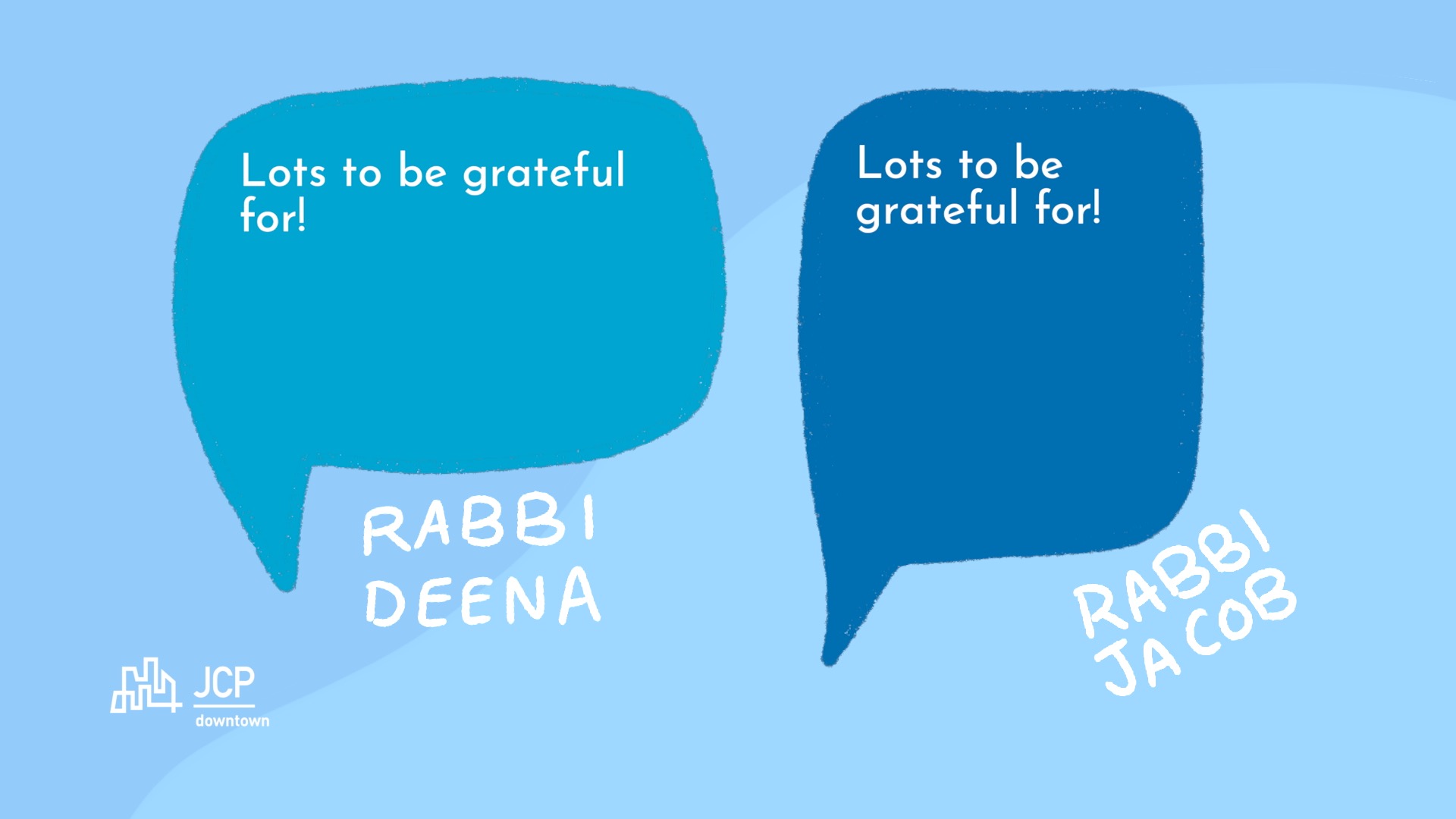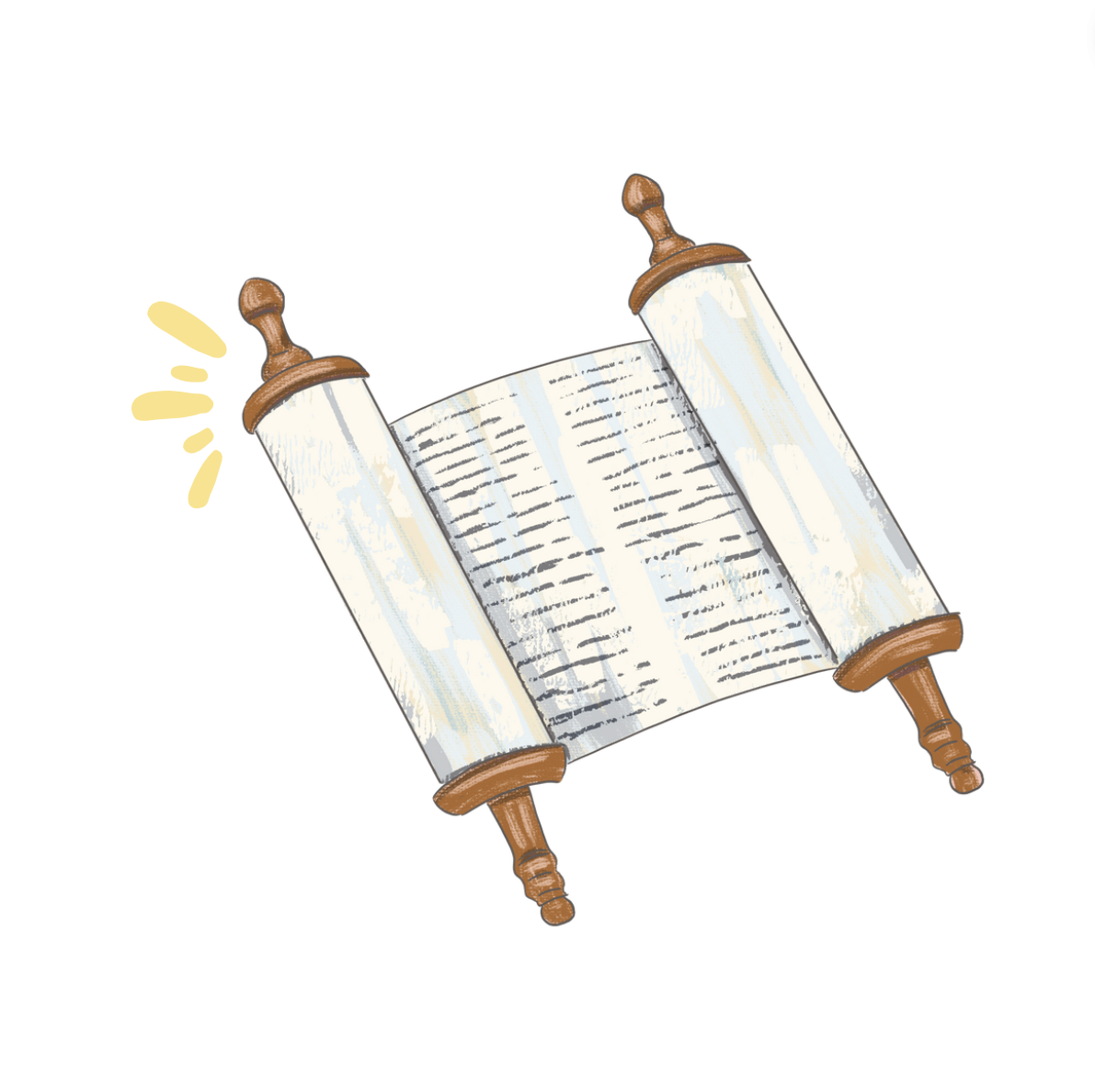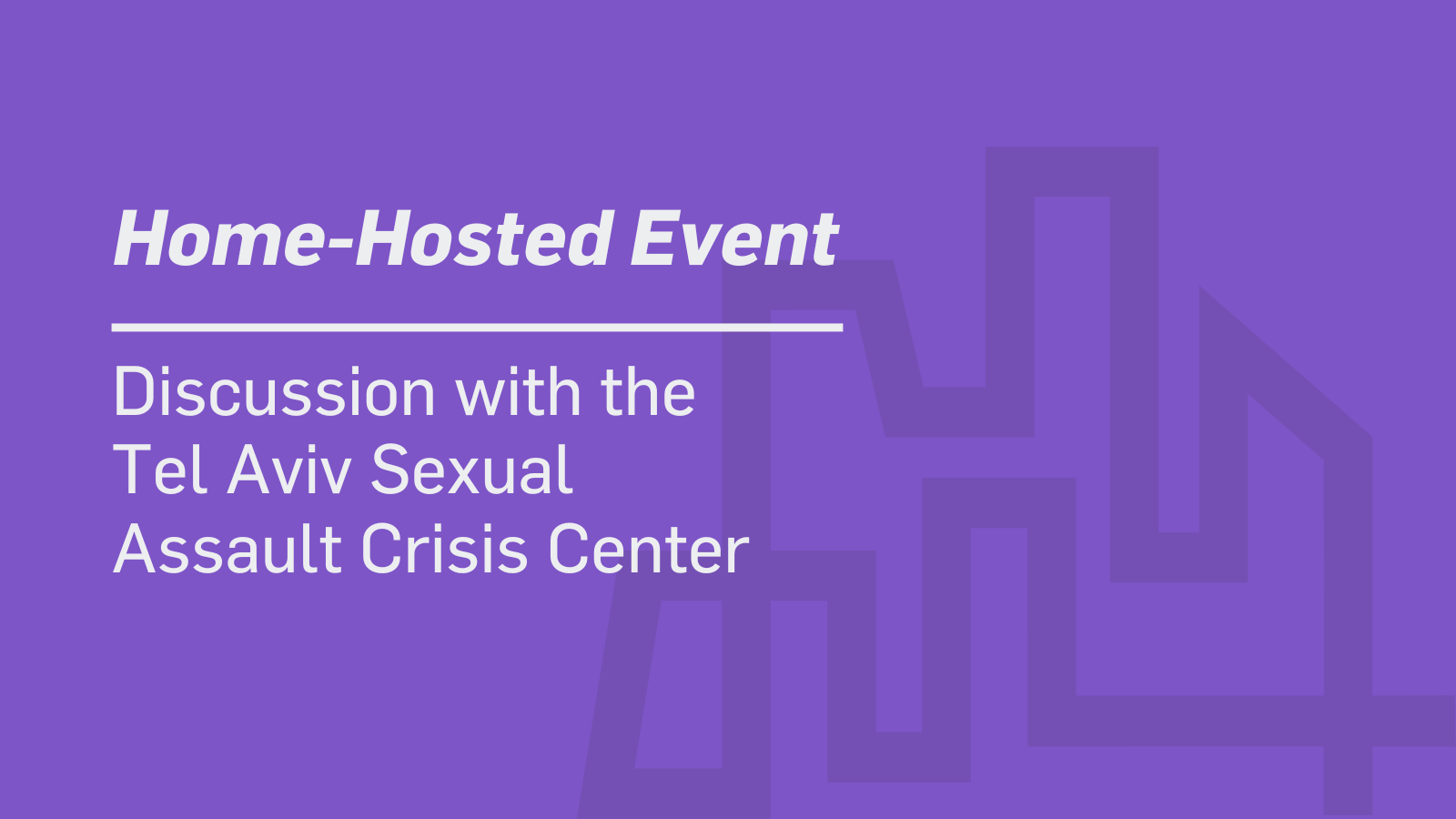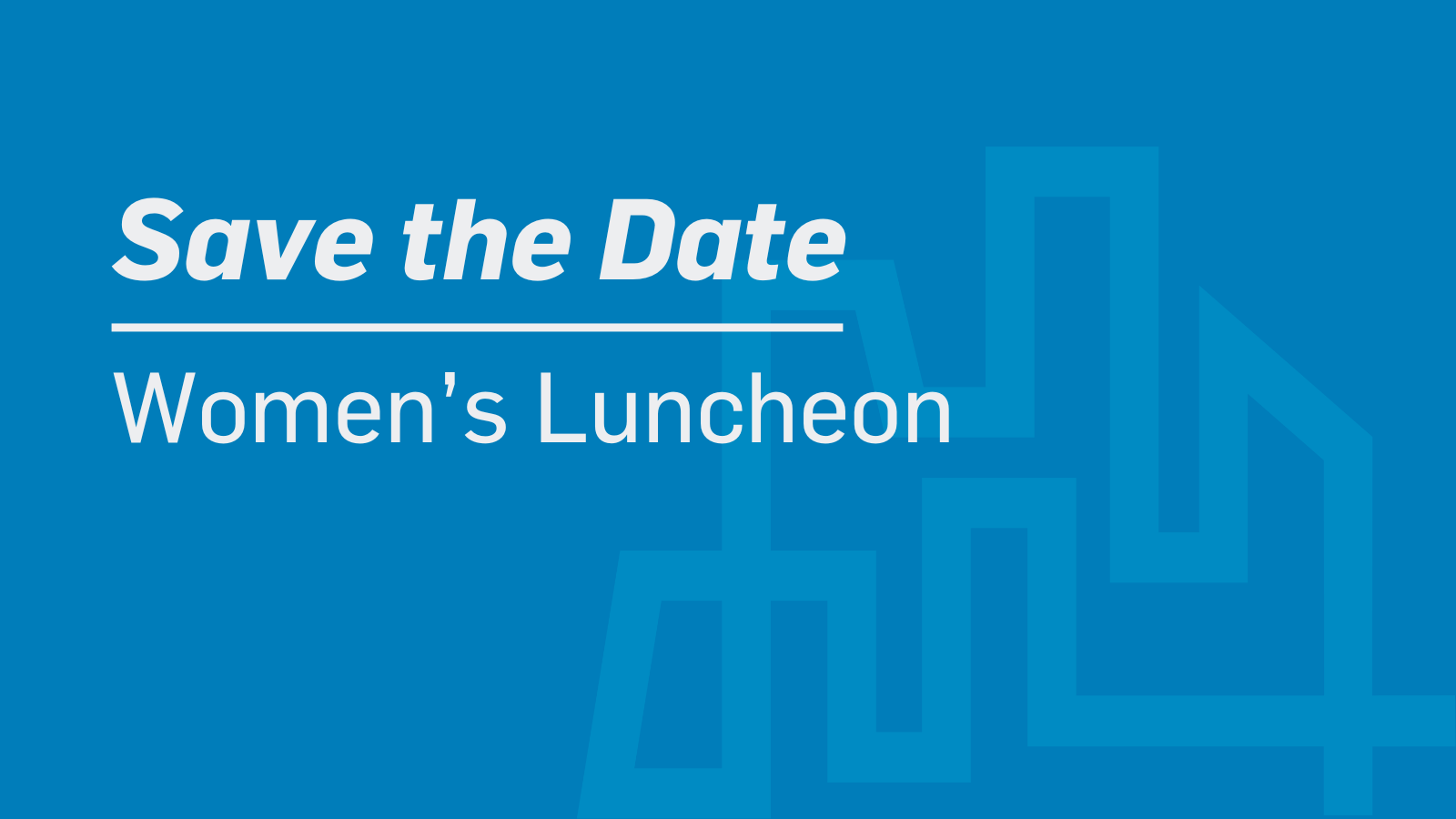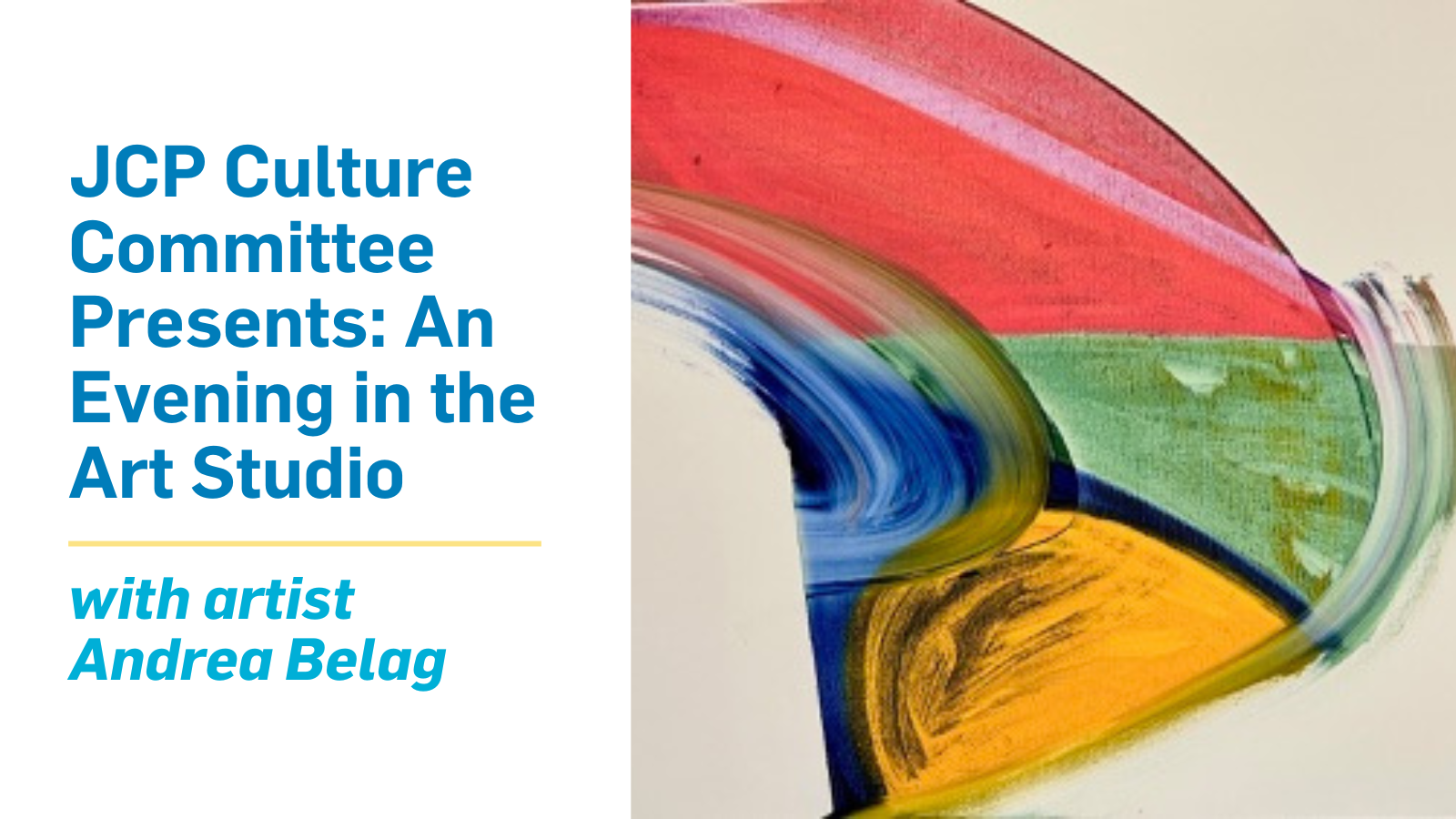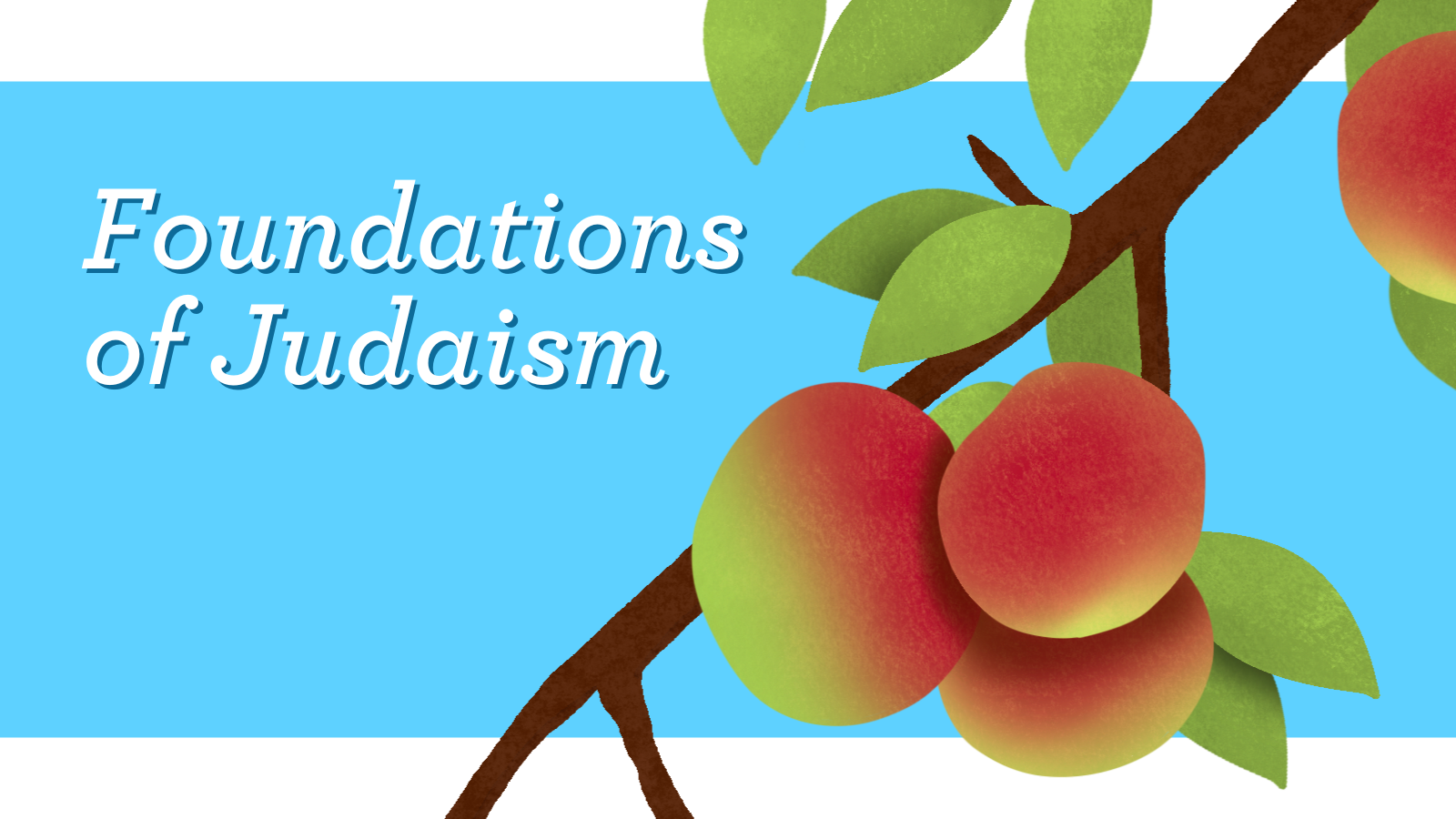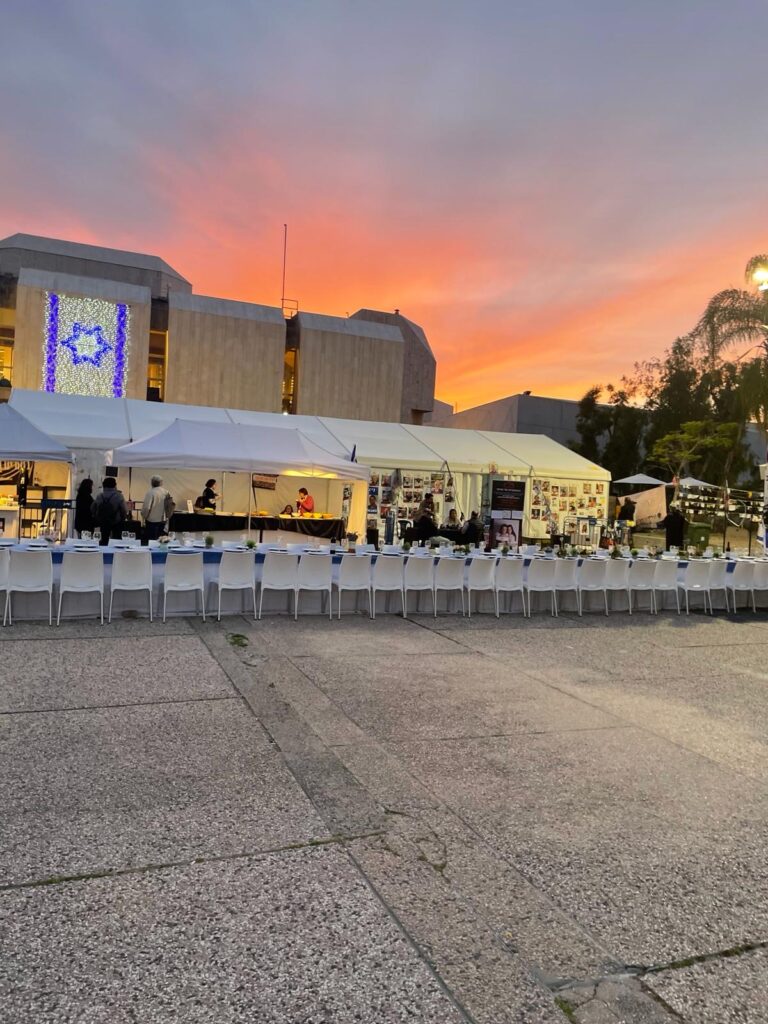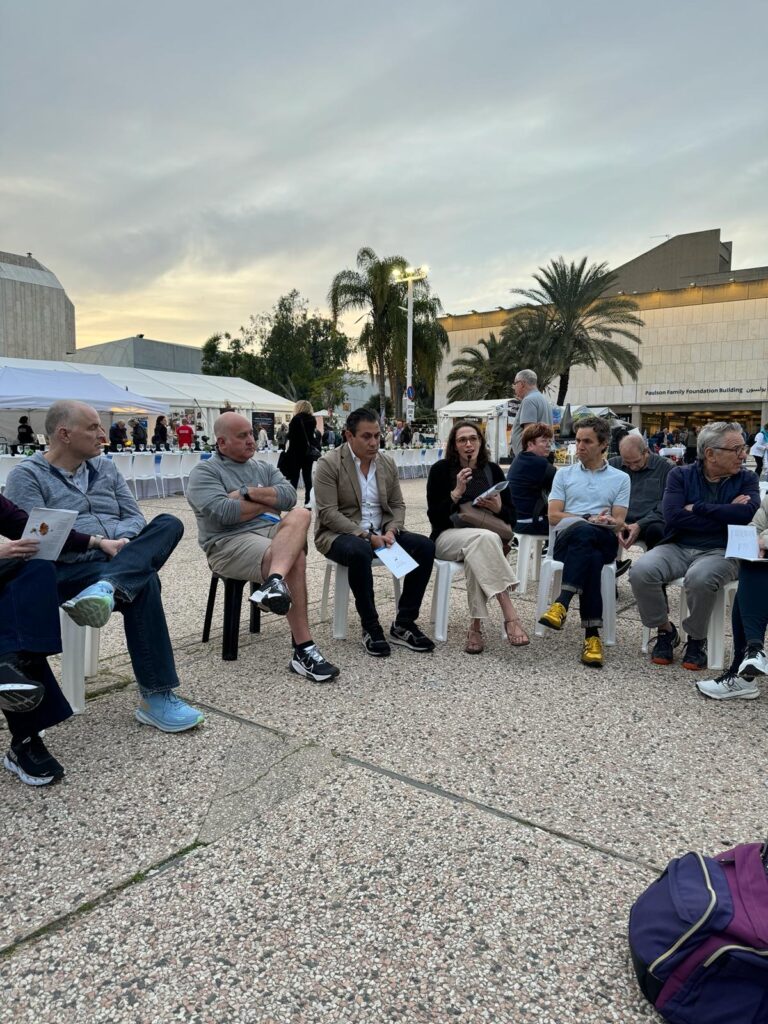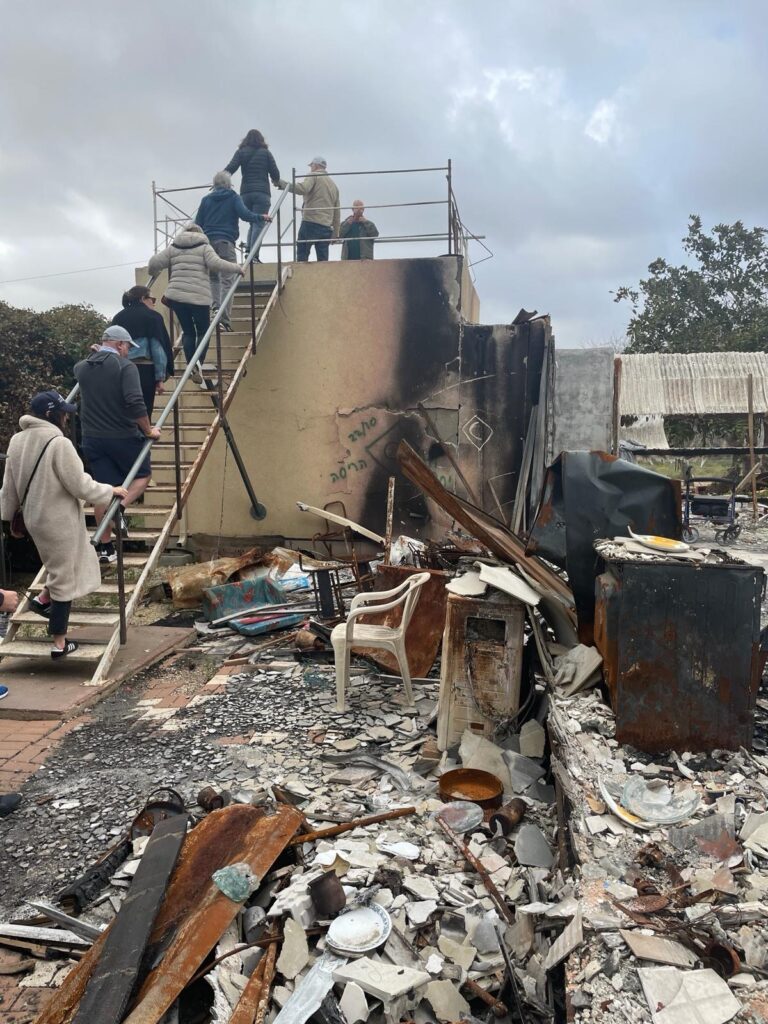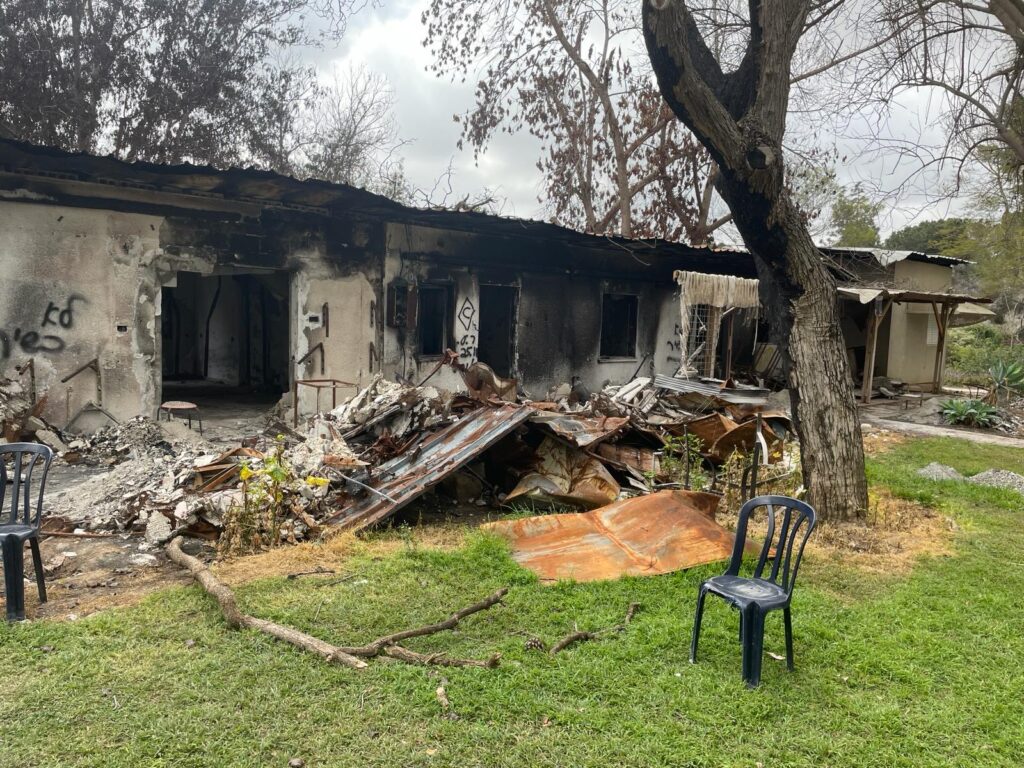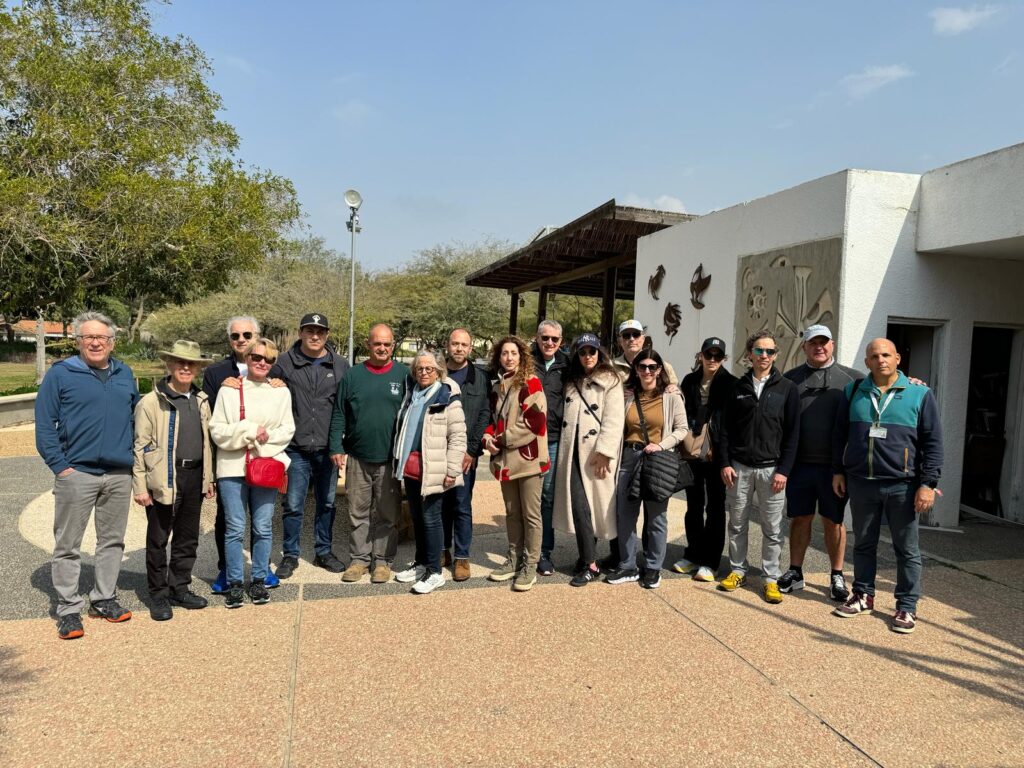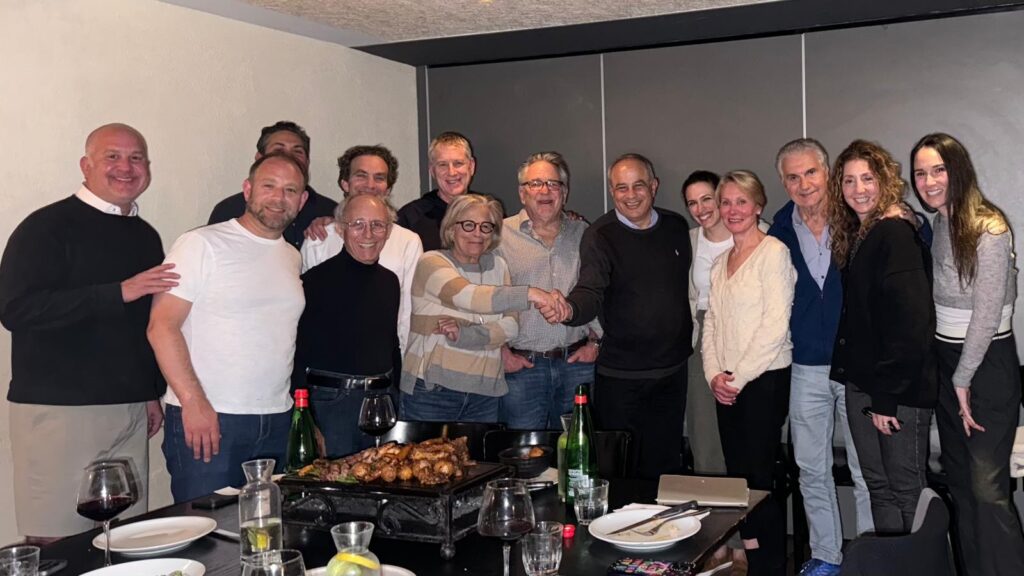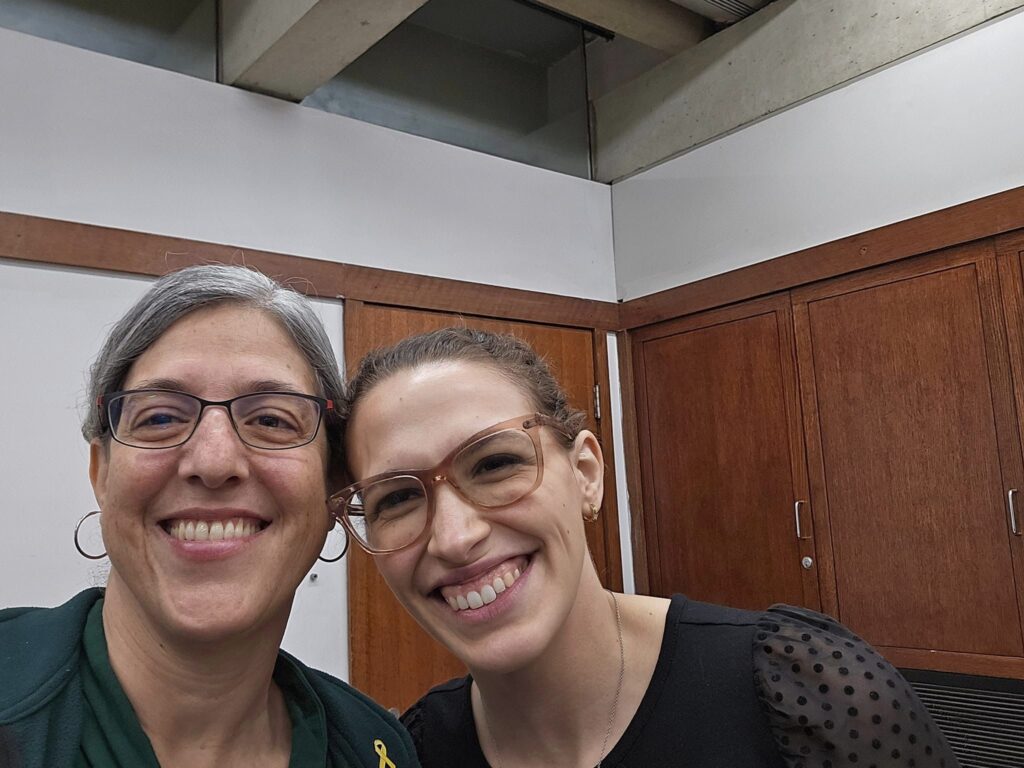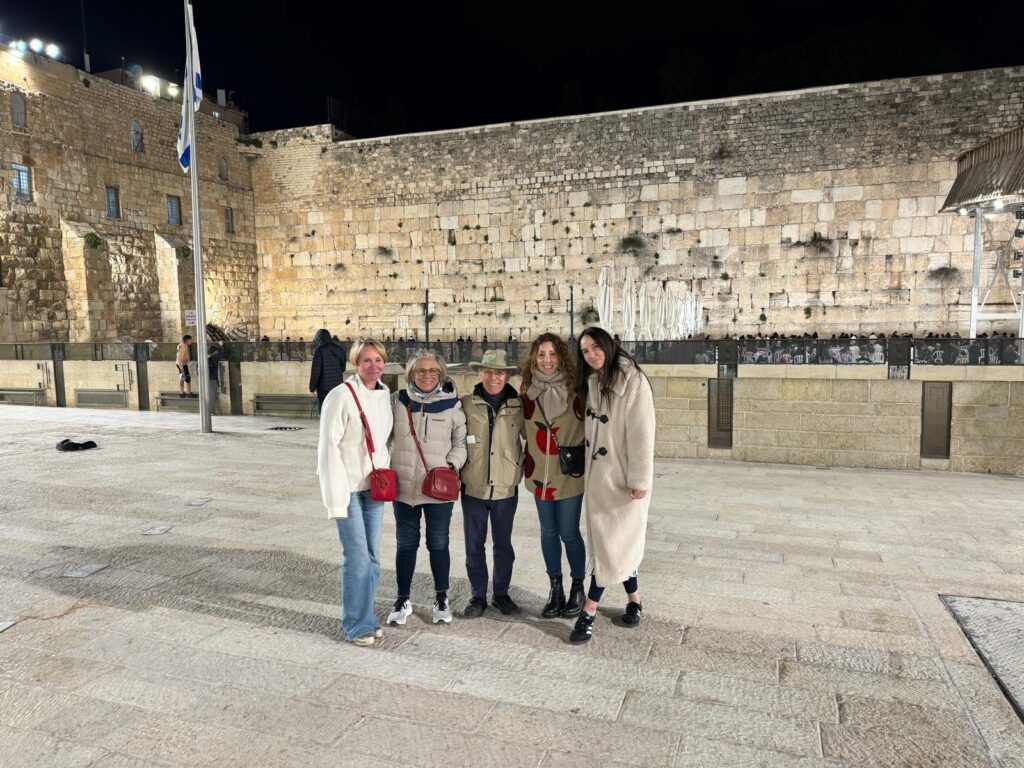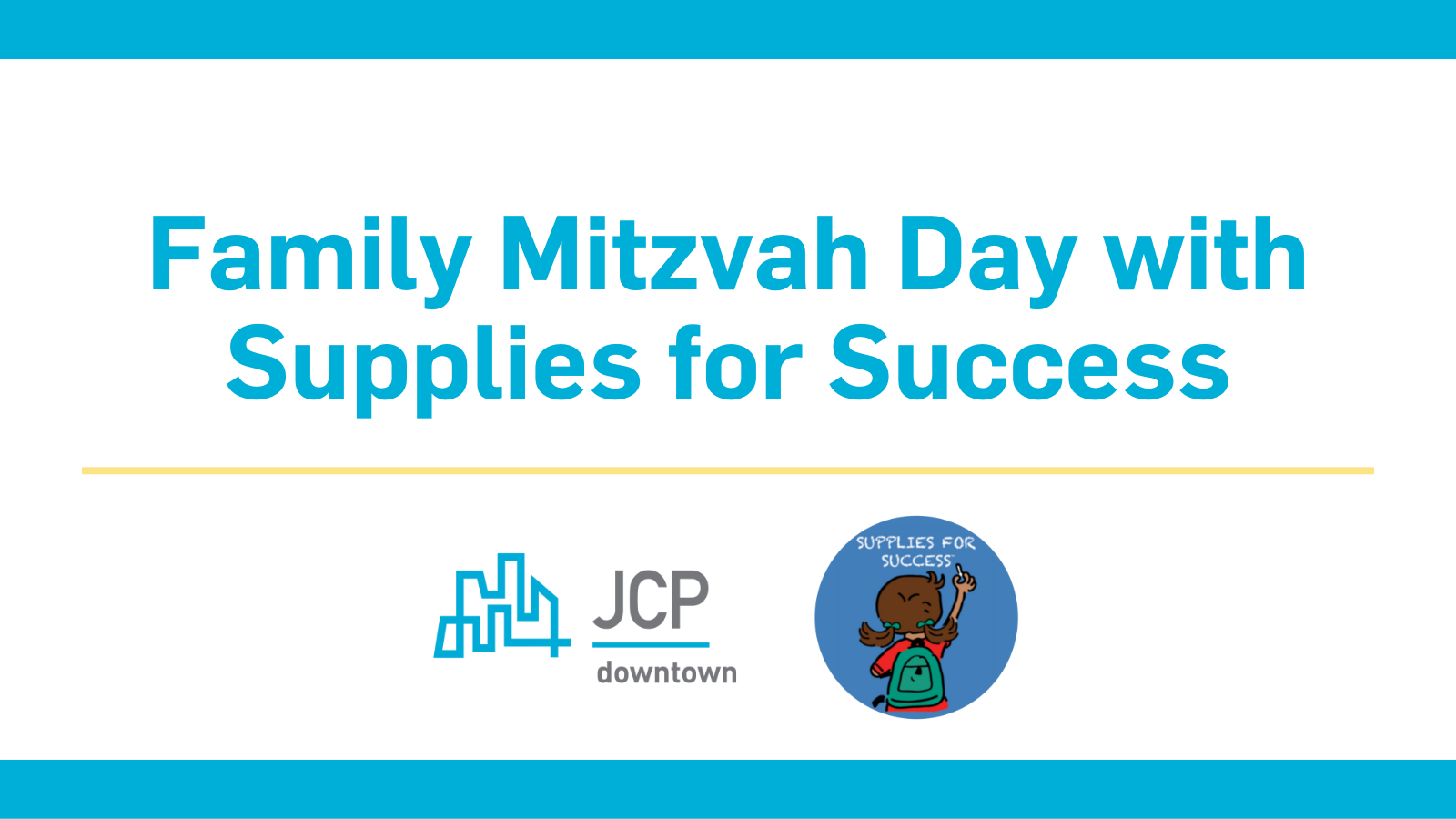This week, our D’var Torah has been written by Jane Grossman Rich, an ECC parent and participant in the JCP Solidarity Mission to Israel.
Throughout my life, I’ve strongly embraced my identity as a Jewish New Yorker, a heritage that I once assumed was ordinary. Raised in a family whose roots trace back to immigrant great-grandparents who fled persecution during pogroms and the early days of the Holocaust, I understood the significance of our Jewishness. My grandparents, all first-generation Americans, instilled in me a deep sense of pride in our cultural and religious traditions. My parents introduced a love of extended family (and their family, and their family, and friends that are like family), the honor of growing up in a culturally Jewish home, and the importance of Israel and the gift of tzedakah and tikkun olam.
I wore my religion and my state as badges of honor, reveling in what felt like a charmed life. The tales of survival passed down from generation to generation seemed remote, distant echoes of a bygone era. As a proud Jewish New Yorker, I felt insulated from the traumas that marked my family’s history and the enduring narrative of our people spanning over 3,500 years.
The morning of October 7th was earth-shattering. The images, the horror, the fear. And little did we know it was only just beginning. At first there was shock. Where is the outrage? The expectation that the world would stand with the people of Israel as the terrorist group governing their neighbor attacked civilians in their homes and at a music festival felt obvious. The quick realization of mass murder, gang rape, and the taking of hostages as young as 10 months and well into their 90’s felt like a bad dream. I knew all of their names. Their stories. Their families. I was obsessed. Why wasn’t the world?
For many weeks it felt like I was drowning. Every time I got my head above water I was hit back down by a wave of antisemitism. A Jewish man murdered at a protest in LA. An airport stormed in Russia. Glued to the news, I felt hopeless and overwhelmed. How could people hold so much hate for such a beautiful minority? And why was it unfolding at a time globally when Israel was in need of our help? The only time I felt secure was when I was helping Jews, talking about Jewish people, or giving back to Israel. I was relentless, posting on Instagram 24/7, depleting resources, finding ways to help strangers in need in our beautiful war-torn country. A beautiful day trip with JCP to D.C. among 300K Jews and allies felt like home but still nothing was enough.
When JCP announced its mission to Israel, a clear set of obstacles presented themselves. As a parent to a three-year-old, juggling a full-time job, and facing the logistical challenges of distance and cost, the decision seemed daunting. The prospect of venturing into a war zone, with no familiar faces and all the global attention, added layers of fear and anxiety. Yet, despite these formidable barriers, there was no alternative: I needed to be there.
I went to Israel with one question: What can I do to help?
Up until the minute I got on the plane I wasn’t sure if I had the courage to follow through. When I landed at Ben Gurion, everything changed. The electricity that pulses through the tapestry of Israeli culture, along with its deep-rooted history, filled my veins with pride and energy. But immediately, a reminder of why we were there: the ramp to customs now covered in familiar faces, 134 hostages still in Gaza 150 days later.
I have not yet been able to fully process a lot of the trip. When I close my eyes, I feel the eeriness and sadness of Kibbutz Nir Oz and the site of Nova. The juxtaposition of the beauty of the locations and the sheer horror of October 7th and the ricochet layers continue to echo. The reality of the events I had been following so closely in real-time were almost too much to handle. Kfir and Ariel Bibas’ high chairs and toys, left unplayed with, will haunt me forever. So what I choose to share is my greatest lesson.
Even in the darkest of times, you can find the helpers and in that you can find the light.
In a country as small as Israel, the lines between individuals blur, creating a sense of crossover where everyone is interconnected. This interconnectedness fosters a culture of compassion and solidarity, where the love and support of one’s fellow citizens know no bounds. It is this sense of collective need to preserve and lift each other that strengthens the fabric of Israeli society, forging bonds that withstand even the most trying of times.
We met Shelly Shem Tov, mother of hostage Omer, who 24 hours after October 7th managed to gather 300+ family members of those assumed hostage to figure out what the next steps were to fight for their loved ones. Her motherly love and strength continues to serve as the foundation for the Hostage Family Forum #bringthemhome, which is a viral global movement. Her strength & resilience in a time of complete heartbreak and agony moved the needle for hundreds of families in her position. Together, they are stronger than one.
We heard the story of Aner, a fearless attendee at the Nova festival who took it upon himself to guard the entrance to a bomb shelter filled with 30 scared youth. He personally saved the lives of many by grabbing over 8 grenades thrown with intention to kill anyone hidden in this tiny cement box and throwing them back out. He chose courage over fear. Oneness over self.
We learned stories of the Bedouins, who without trepidation got in their cars and drove towards an active terror attack and managed to save Nova festival attendees trying to flee. Proving once again, the fabric of the Israeli people is so beautiful because it is diverse.
The stories of these helpers resonate with a profound sense of hope and resilience.These acts serve as powerful reminders of the indomitable spirit that thrives within the Israeli community. In the midst of turmoil and uncertainty, these stories stand as beacons of light, illuminating the path forward and inspiring others to follow in their footsteps.
What’s next:
I have always known, but have never understood as intimately as I do now the delicate dichotomy that exists in our world as Jews: when Israel is not safe, none of us are.
Israel is not just a country, but a Jewish project – a collective effort to preserve our culture, our ancestral homeland, but most importantly our people. As Jews around the world, it is our responsibility to stand in solidarity with Israel, to support and defend its right to exist, for the future of our global Jewish community depends on it. The ruach, or spirit, of Israel is one of strength and perseverance, inspiring us all to never give up, no matter the challenges we may face.
As I reflect on my experiences, I am reminded of the importance of coming together as a community, supporting one another through both the good times and the bad. In the midst of tragedy and turmoil, it is our collective humanity that sustains us, offering hope where there is despair and light where there is darkness. In Israel, the goodness of the people shines brightly, serving as a beacon of hope for us all. The spirit of survival is in our bones.
Although our JCP mission to Israel has come to a close, it is clear that our work at home and our true “mission” is only beginning. It is our birthright to protect and yell our pride in our Jewishness to anyone that will listen. To share our spirit of community and our ruach with the world and to continue to be the light in the absolute darkest of times. To stand with our community both in New York and globally to amplify the good. To be fearless. To be the helpers. I look forward to standing beside you.
Shabbat shalom.

